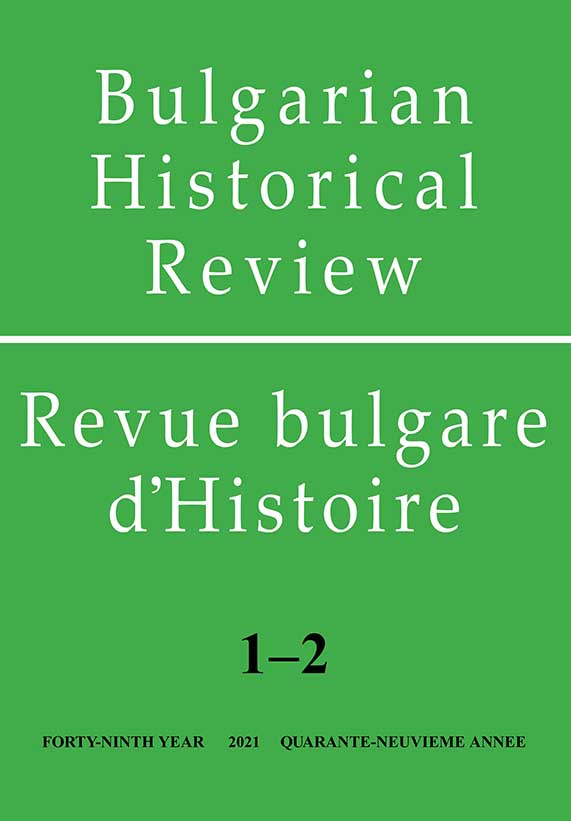The Bulgarians from the Sibiu Region. Documents and Testimonials on the Communities from Bungard and Rusciori
The Bulgarians from the Sibiu Region. Documents and Testimonials on the Communities from Bungard and Rusciori
Author(s): Nicoleta Annemarie Munteanu, Eugen StrăuţiuSubject(s): History, Cultural history, Comparative history, Ethnohistory, Local History / Microhistory, Social history, Middle Ages, Modern Age, 6th to 12th Centuries, 13th to 14th Centuries, 15th Century, 16th Century, 17th Century, 18th Century, 19th Century
Published by: Институт за исторически изследвания - Българска академия на науките
Keywords: Bulgarians; Lutheran; Orthodox; German; Romanian; nation;
Summary/Abstract: The Bulgarian presence in southern Transylvania, limited to four communities, was investigated accidentally, predominating the repertoire of facts – and is almost completely devoid of causal and comparative explanations. On the other hand, the two Bulgarian communities in the vicinity of Sibiu, Bungard and Rusciori, were never explained in relation to the historical era in which they were founded, neither concerning the guardian factor from Sibiu (political-administrative and religious), nor in their mutual relation. In these conditions, our research proposes: to identify and systematize, chronologically and logically, the relevant facts (from an ethnic, religious, administrative, linguistic point of view); to explain in a causal and comparative way the similar and divergent evolutions of the two communities; to discover and evaluate the external influences, which have determined decisive options regarding the adoption of the Lutheran or Orthodox confessions, as well as that of the Romanian or German languages; to explain the causes of the disappearance of the two Bulgarian communities, in terms of relations between external factors and internal decisions – adopted according to the group and individual interests. Specifically, we analyse the processes by which the Bulgarians from Bungard went from Orthodoxy to Lutheranism and then returned to Orthodoxy, while preserving the Romanian language. On the other hand, we point to a unique case in Transylvania, in which a community (Bulgarians from Rusciori), without acquiring the German language – and therefore without access to the founding cultural values of this nation – became a most active contributor to Nazi inspired German nationalism. The destiny of the Bulgarians from there merged (only after the compulsory education during the communist regime made the young Bulgarian-speaking Germans) with the fate of the German community in Romania, who emigrated en masse to “Vaterland”, where they are building their own futures.
Journal: Bulgarian Historical Review / Revue Bulgare d'Histoire
- Issue Year: 2021
- Issue No: 1-2
- Page Range: 16-37
- Page Count: 22
- Language: English
- Content File-PDF

